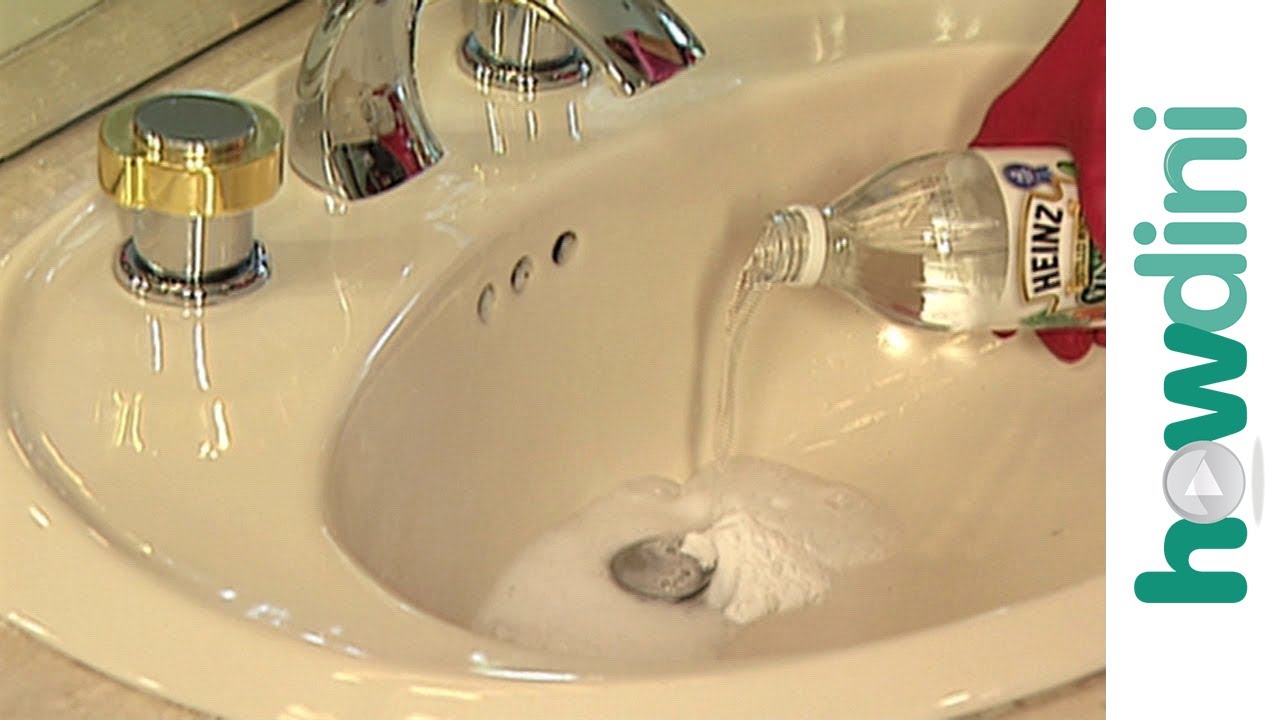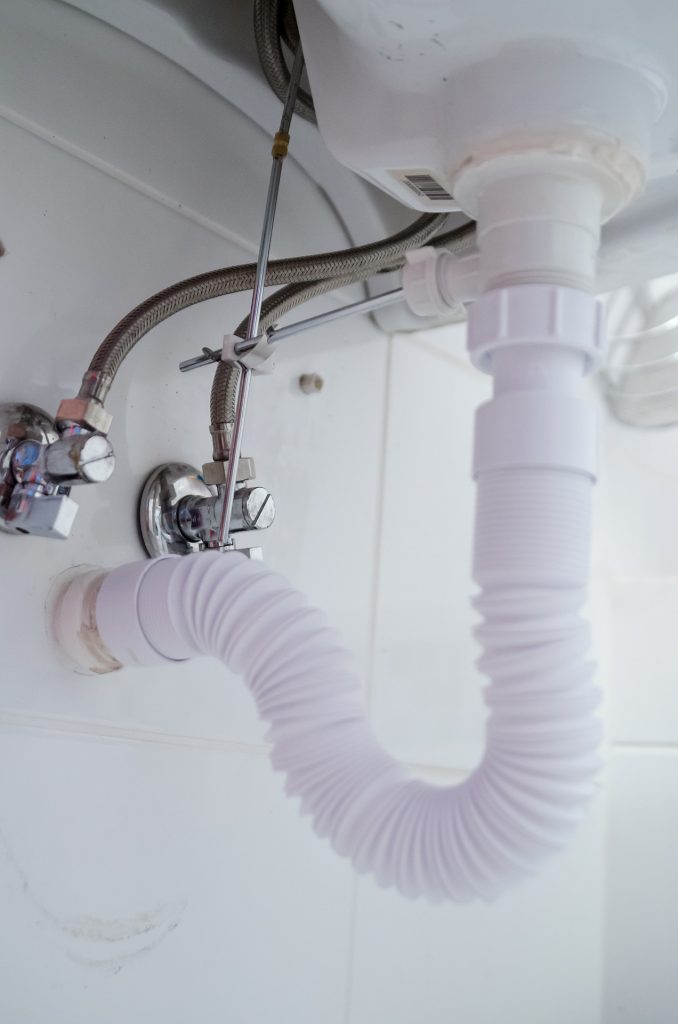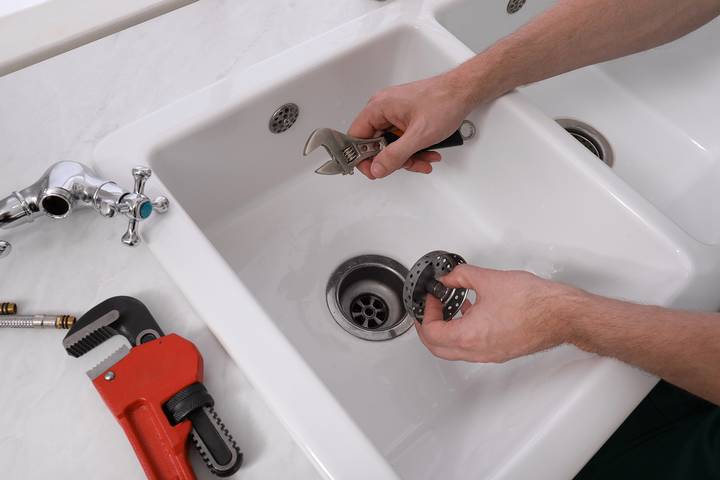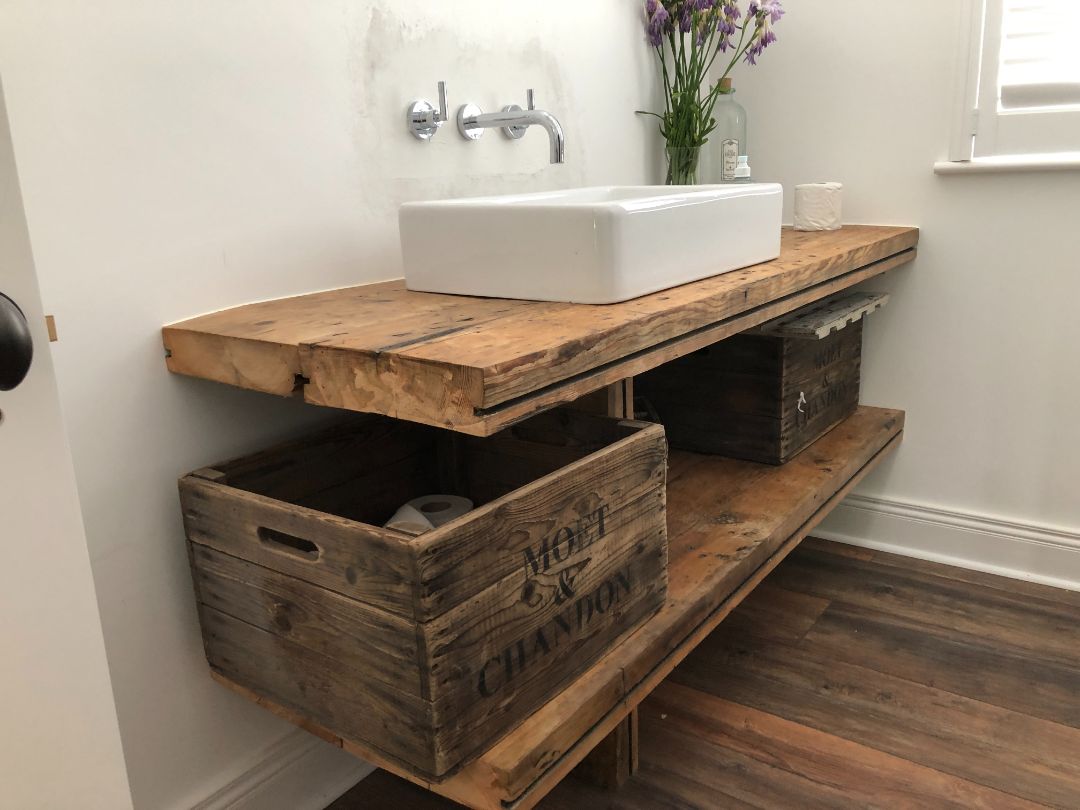Dealing with a slow kitchen sink drain can be a frustrating and unpleasant experience. The water takes forever to drain and the sink becomes a breeding ground for bacteria and unpleasant odors. But fear not, there are simple and effective ways to unclog a slow kitchen sink drain and get your sink back to its normal functioning self. If you're faced with a slow kitchen sink drain, the first step is to identify the cause. It could be a buildup of food particles, grease, or even foreign objects that have found their way into the drain. Once you know the cause, you can choose the appropriate method to fix the issue.1. Unclogging a Slow Kitchen Sink Drain
If the cause of your slow kitchen sink drain is a buildup of food particles and grease, a plunger can be your best friend. Fill the sink with some hot water and place the plunger over the drain, making sure there is a tight seal. Push and pull the plunger a few times to create suction and then quickly pull it away. This should dislodge the buildup and allow the water to drain freely. If the plunger doesn't work, you can try using a plumbing snake or a bent wire hanger to manually remove the blockage. Insert the tool into the drain and twist, push, and pull until you feel the blockage loosen and break apart. Then run hot water down the drain to flush out any remaining debris.2. How to Fix a Slow Kitchen Sink Drain
If you prefer natural and chemical-free solutions, there are several DIY methods you can try to unclog a slow kitchen sink drain. One popular method is using a combination of baking soda and vinegar. Pour half a cup of baking soda down the drain, followed by half a cup of vinegar. Let the mixture sit for 15-20 minutes and then pour hot water down the drain to flush it out. You can also try pouring a pot of boiling water down the drain, followed by half a cup of salt. Let it sit for a few minutes, then rinse with hot water. The hot water will melt any grease buildup while the salt will help break it down.3. DIY Solutions for a Slow Kitchen Sink Drain
Preventing a slow kitchen sink drain starts with understanding the common causes. The most common cause is a buildup of food particles, grease, and oils. These substances can accumulate in the drain and cause blockages over time. Another common cause is foreign objects, such as utensils or small toys, accidentally falling into the drain. Old and deteriorating pipes can also contribute to a slow kitchen sink drain as they can become clogged or damaged, reducing the flow of water. It's important to regularly check and maintain your pipes to avoid any potential issues.4. Causes of a Slow Kitchen Sink Drain
Prevention is always better than cure, and there are simple steps you can take to prevent a slow kitchen sink drain. Avoid pouring grease and oils down the drain, as they can solidify and cause blockages. Use a drain strainer to catch food particles and debris, and regularly clean it out. You can also run hot water down the drain after each use to help prevent any buildup. Avoid putting foreign objects down the drain, and if you have a garbage disposal, make sure to run it regularly to keep it clear and prevent clogs.5. Tips for Preventing a Slow Kitchen Sink Drain
If the DIY methods don't work or if you're dealing with a more severe blockage, it may be time to call in the professionals. A plumber can use specialized tools and equipment to clear the blockage and ensure that your kitchen sink drain is functioning properly. If the issue is with your pipes, a professional can also identify and fix any damage or corrosion that may be causing the slow drain. It's always best to leave complicated plumbing issues to the experts to avoid causing further damage.6. Professional Services for a Slow Kitchen Sink Drain
Not everyone has a plunger or a plumbing snake readily available, but there are common household items that can serve as effective tools in unclogging a slow kitchen sink drain. For example, a wet/dry vacuum can be used to create suction and pull out the blockage. You can also use a combination of dish soap and hot water to break down grease and oils. Pour a few tablespoons of dish soap down the drain, followed by a pot of hot water. Let it sit for a few minutes, then run hot water down the drain again.7. Common Household Items that Can Help Unclog a Slow Kitchen Sink Drain
A slow kitchen sink drain can be caused by various factors, and it's important to identify the cause to properly fix the issue. If the water is draining slowly, but eventually goes down, it's likely a partial blockage that can be fixed with DIY methods. However, if the water is not draining at all, there may be a more severe blockage or a problem with the pipes that requires professional help. If you're unsure of the cause, it's always best to start with the simplest and least invasive methods and gradually move on to more complicated solutions if needed.8. How to Identify and Fix a Slow Kitchen Sink Drain
If you prefer to use natural and chemical-free solutions, there are several options available to help unclog a slow kitchen sink drain. One effective method is using a combination of lemon juice and baking soda. Pour half a cup of baking soda down the drain, followed by half a cup of lemon juice. Let it sit for 15-20 minutes, then flush with hot water. You can also try using a mixture of salt, baking soda, and cream of tartar. Mix equal parts of each ingredient and pour it down the drain. Let it sit for a few minutes, then rinse with hot water.9. Natural Remedies for a Slow Kitchen Sink Drain
A slow kitchen sink drain is not always immediately noticeable, but there are some signs that can indicate an issue. If you notice water draining slowly or not at all, gurgling noises coming from the drain, or unpleasant odors coming from the sink, it's likely that your kitchen sink drain needs some attention. It's important to address these issues promptly to avoid further damage and potential health hazards. With regular maintenance and proper care, you can prevent a slow kitchen sink drain and keep your sink functioning smoothly.10. Signs that Your Kitchen Sink Drain is Slow and Needs Attention
Why Your Kitchen Sink Drain is Slow and How to Fix It

Common Causes of a Slow Kitchen Sink Drain
 There are few things more frustrating than a slow kitchen sink drain. It can make everyday tasks like washing dishes and preparing meals feel like a never-ending chore. But what is causing your kitchen sink to drain slowly? There are a few common culprits that may be to blame.
1. Food Debris and Grease Buildup
One of the most common causes of a slow kitchen sink drain is a buildup of food debris and grease. When we wash dishes or rinse off fruits and vegetables in the sink, tiny bits of food can get stuck in the drain pipes. Over time, this buildup can accumulate and cause a clog, making it difficult for water to flow freely through the drain.
2. Faulty or Clogged Drain Pipes
Another possible cause of a slow kitchen sink drain is a clog in the drain pipes themselves. This can happen if foreign objects, such as utensils or large chunks of food, get lodged in the pipes. It can also occur if the pipes are old or damaged, causing them to narrow and restrict the flow of water.
3. Improperly Installed or Sized Drain Pipes
Sometimes, the issue of a slow kitchen sink drain can be traced back to the initial installation of the sink and its drain pipes. If the pipes are too small or not angled properly, they may not be able to handle the amount of water and debris that goes down the drain. This can lead to clogs and slow drainage.
There are few things more frustrating than a slow kitchen sink drain. It can make everyday tasks like washing dishes and preparing meals feel like a never-ending chore. But what is causing your kitchen sink to drain slowly? There are a few common culprits that may be to blame.
1. Food Debris and Grease Buildup
One of the most common causes of a slow kitchen sink drain is a buildup of food debris and grease. When we wash dishes or rinse off fruits and vegetables in the sink, tiny bits of food can get stuck in the drain pipes. Over time, this buildup can accumulate and cause a clog, making it difficult for water to flow freely through the drain.
2. Faulty or Clogged Drain Pipes
Another possible cause of a slow kitchen sink drain is a clog in the drain pipes themselves. This can happen if foreign objects, such as utensils or large chunks of food, get lodged in the pipes. It can also occur if the pipes are old or damaged, causing them to narrow and restrict the flow of water.
3. Improperly Installed or Sized Drain Pipes
Sometimes, the issue of a slow kitchen sink drain can be traced back to the initial installation of the sink and its drain pipes. If the pipes are too small or not angled properly, they may not be able to handle the amount of water and debris that goes down the drain. This can lead to clogs and slow drainage.
How to Fix a Slow Kitchen Sink Drain
 Now that you know some of the common causes of a slow kitchen sink drain, it's time to learn how to fix it. Here are some tips and tricks to help get your sink draining like new again.
1. Use a Plunger
If the cause of your slow kitchen sink drain is a clog in the pipes, a plunger may do the trick. First, fill the sink with enough water to cover the plunger. Then, place the plunger over the drain and push down and pull up in quick motions. This suction should dislodge the clog and allow the water to flow freely once again.
2. Try a Natural Drain Cleaner
Chemical drain cleaners can be harsh and damaging to your pipes. Instead, try a natural drain cleaner such as a mixture of baking soda and vinegar. Pour half a cup of baking soda down the drain, followed by half a cup of vinegar. Let it sit for 15 minutes, then flush with hot water to clear out any buildup.
3. Call a Professional
If your kitchen sink drain is still slow after trying these methods, it may be time to call a professional plumber. They will have the tools and expertise to properly diagnose and fix the issue, ensuring your sink drains efficiently.
Now that you know some of the common causes of a slow kitchen sink drain, it's time to learn how to fix it. Here are some tips and tricks to help get your sink draining like new again.
1. Use a Plunger
If the cause of your slow kitchen sink drain is a clog in the pipes, a plunger may do the trick. First, fill the sink with enough water to cover the plunger. Then, place the plunger over the drain and push down and pull up in quick motions. This suction should dislodge the clog and allow the water to flow freely once again.
2. Try a Natural Drain Cleaner
Chemical drain cleaners can be harsh and damaging to your pipes. Instead, try a natural drain cleaner such as a mixture of baking soda and vinegar. Pour half a cup of baking soda down the drain, followed by half a cup of vinegar. Let it sit for 15 minutes, then flush with hot water to clear out any buildup.
3. Call a Professional
If your kitchen sink drain is still slow after trying these methods, it may be time to call a professional plumber. They will have the tools and expertise to properly diagnose and fix the issue, ensuring your sink drains efficiently.
Preventing a Slow Kitchen Sink Drain
 To avoid dealing with a slow kitchen sink drain in the future, there are some preventative measures you can take. Make sure to regularly clean your sink and drain, and use a drain strainer to catch any food debris. Avoid pouring grease or oil down the drain, and try to limit the amount of food scraps that go down the drain.
In conclusion, a slow kitchen sink drain can be a frustrating and inconvenient issue, but it is also a common one. By understanding the possible causes and knowing how to fix and prevent it, you can keep your kitchen sink draining smoothly and efficiently.
To avoid dealing with a slow kitchen sink drain in the future, there are some preventative measures you can take. Make sure to regularly clean your sink and drain, and use a drain strainer to catch any food debris. Avoid pouring grease or oil down the drain, and try to limit the amount of food scraps that go down the drain.
In conclusion, a slow kitchen sink drain can be a frustrating and inconvenient issue, but it is also a common one. By understanding the possible causes and knowing how to fix and prevent it, you can keep your kitchen sink draining smoothly and efficiently.






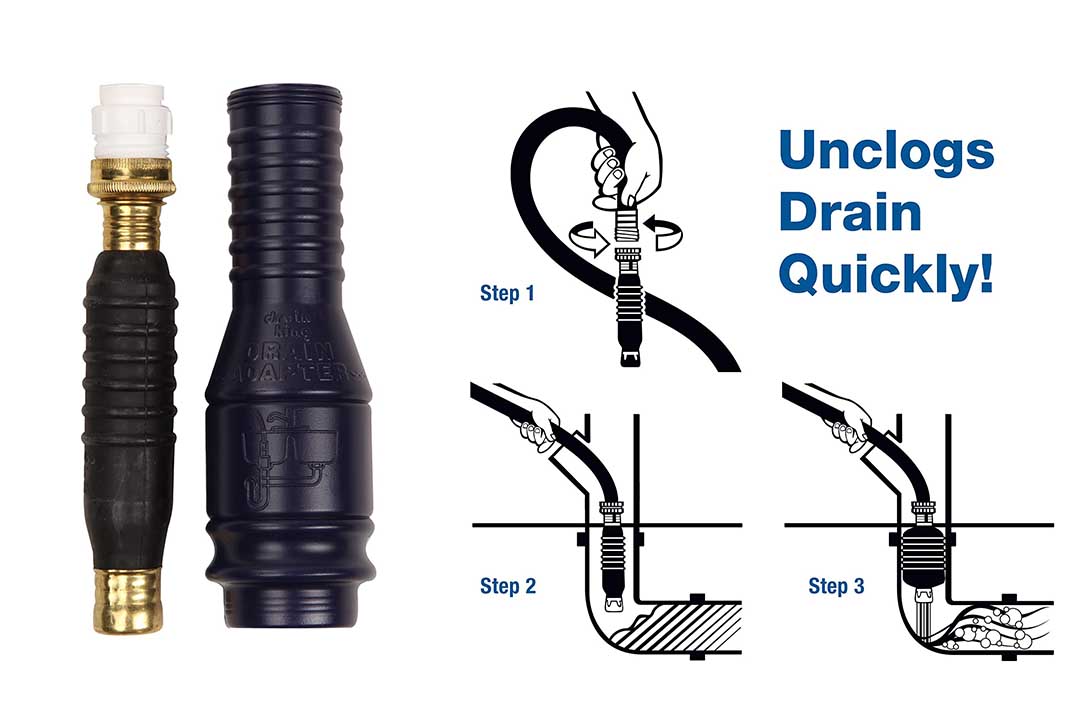







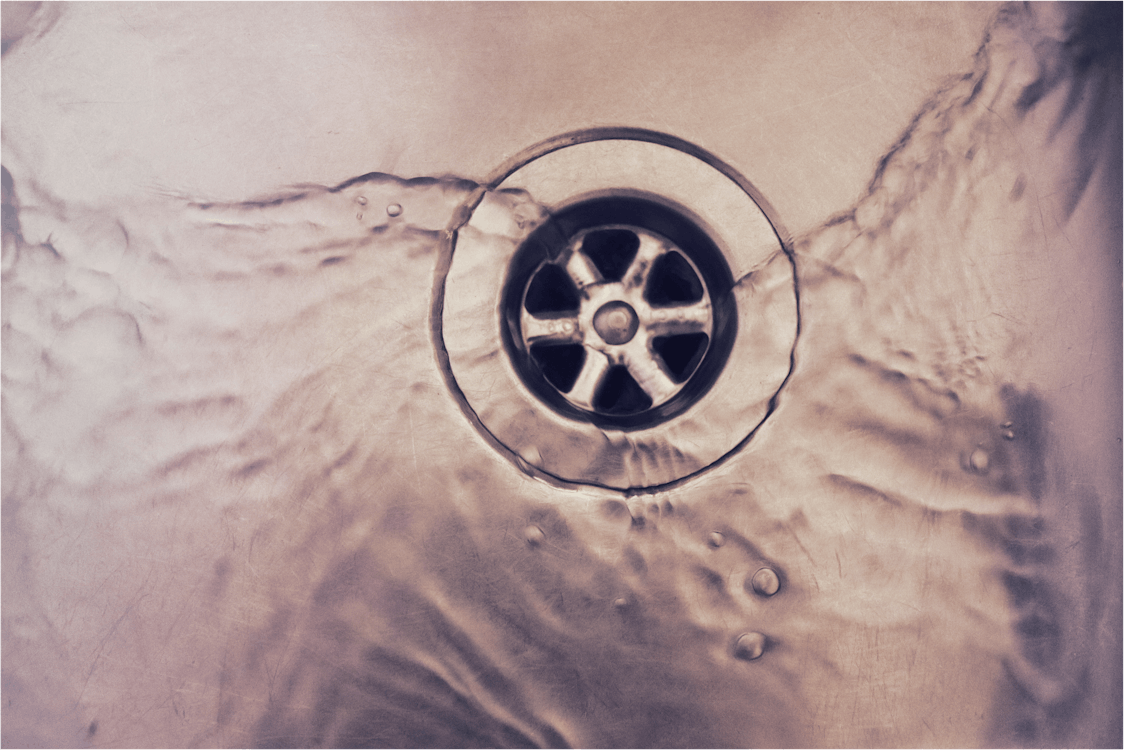


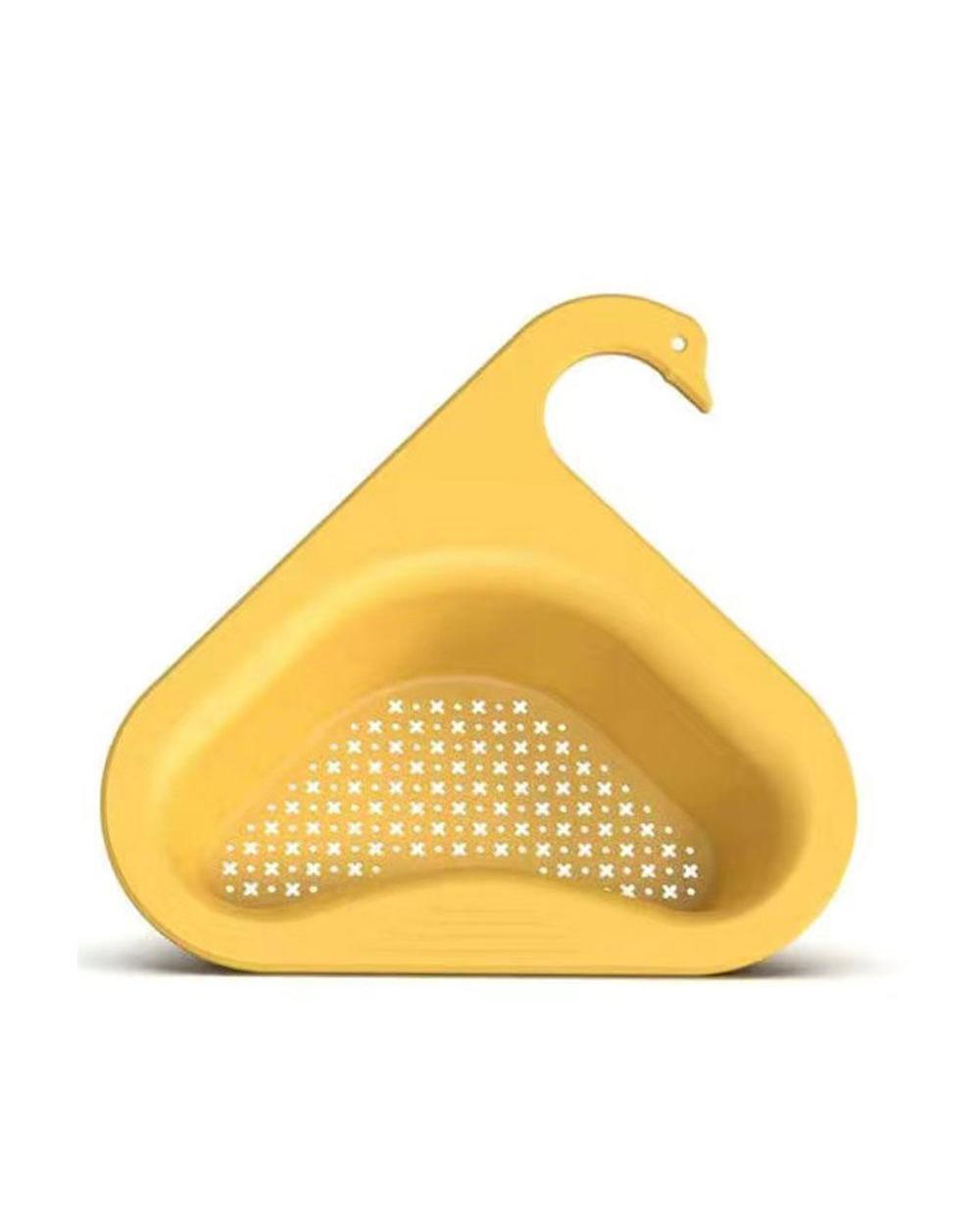







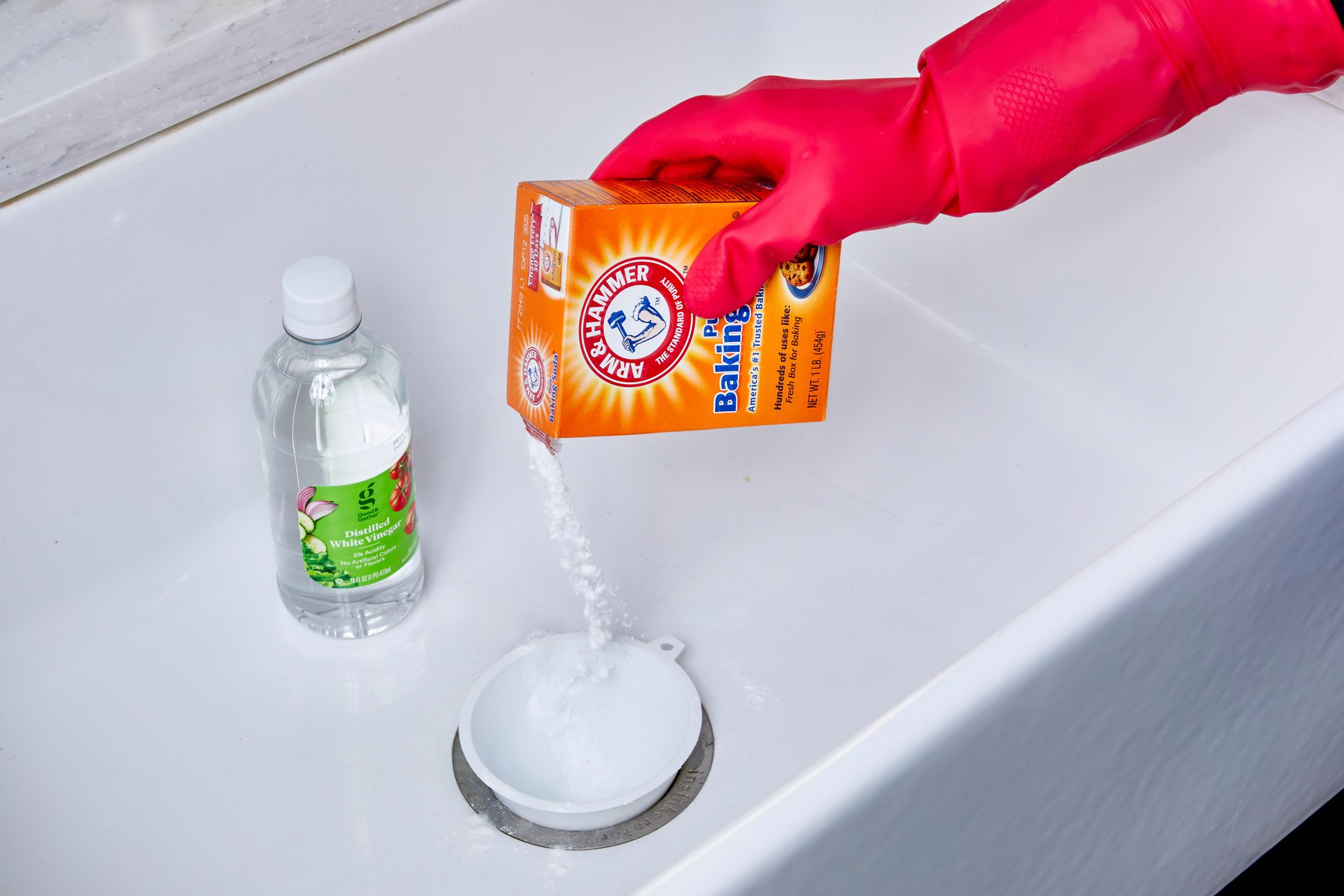








/close-up-of-overflowing-bathroom-sink-90201417-579787783df78ceb865822d8-5c30d5dac9e77c0001149e8f.jpg)





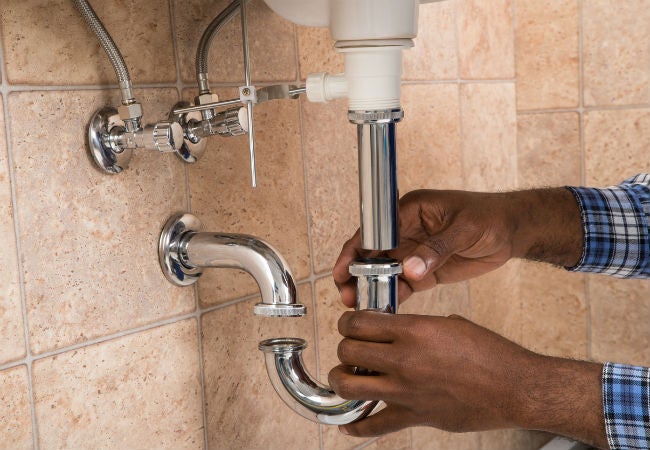






:max_bytes(150000):strip_icc()/freshen-and-unclog-drain-with-baking-soda-1900466-18-1a5b5da01939471ca8f8823865bd1ce8.jpg)
